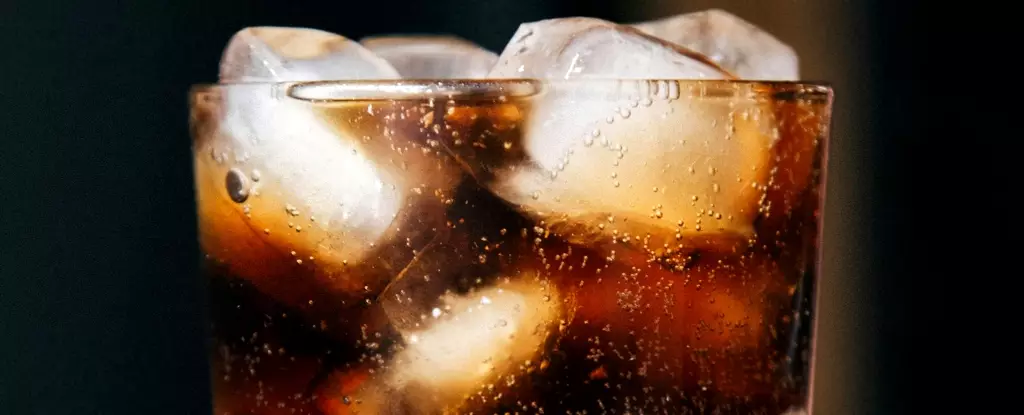In today’s modern world, sugary beverages have become ubiquitous, gracing the shelves of convenience stores and fast-food outlets alike. From sodas to energy drinks, these products are specifically engineered to tantalize our taste buds and stimulate the pleasure centers in our brains, leading to their widespread consumption. However, this initial euphoric experience can be deceptive, serving as the gateway to a plethora of health issues that plague consumers unknowing of the long-term repercussions.
Sugar-sweetened beverages (SSBs) typically lack nutritional value and contribute to numerous health concerns. They have been linked to conditions such as obesity, type 2 diabetes, heart disease, and dental decay. Alarmingly, recent research, prominently featuring a study from Tufts University, paints a sobering picture: approximately 1.2 million new cases of cardiovascular diseases and an astonishing 2.2 million cases of type 2 diabetes arise globally each year, largely attributed to the consumption of these sugary drinks.
While there has been a slight decline in the consumption of sugary beverages in some developed countries, developing regions continue to face an escalating crisis. Lead researcher Dariush Mozaffarian highlights that countries in low- and middle-income brackets remain vulnerable, primarily due to aggressive marketing and availability of these harmful drinks. As communities grapple with the long-term health consequences of SSB consumption, they often lack the resources to adequately address the resultant health issues.
The situation is especially dire in nations such as Mexico and Colombia, where the study attributes nearly one-third and half of their new diabetes cases, respectively, to sugary drinks. South Africa reports similar troubling statistics, linking 28 percent of new diabetes cases and 15 percent of new heart disease cases to excessive consumption of SSBs. Each of these statistics underscores an urgent public health crisis that cannot be ignored.
Defining the Threat: Understanding Sugar-Sweetened Beverages
The study characterizes sugar-sweetened beverages broadly, encompassing a range of drinks that include not only commercial sodas but also homemade concoctions like lemonade and fruit punches. Categorically, SSBs are defined as any beverage with added sugars and containing at least 50 kilocalories per 8-ounce serving. This classification does not account for naturally sweetened beverages or sugar-free alternatives, though it’s crucial to recognize that many drinks could pose health risks when consumed excessively.
Leveraging data gathered from a vast array of surveys, this research delves deep into the correlation between SSB consumption and rising health issues like type 2 diabetes and cardiovascular diseases. The results indicate a grim reality: beyond the staggering numbers of new disease cases, sugary drinks contribute significantly to roughly 80,000 deaths from type 2 diabetes and 258,000 from cardiovascular conditions annually.
These findings have drawn urgent calls for action from the public health community. The first author of the study, nutritional scientist Laura Lara-Castor, stresses the necessity of implementing evidence-based interventions that target SSB consumption on a global scale. As alarming as the statistics may appear, there is still an opportunity to mitigate the adverse effects of these beverages if we act swiftly and decisively.
Moreover, the rapid digestion of sugary drinks can impact blood sugar levels dramatically while offering minimal nutritional benefits. Frequent consumption not only contributes to weight gain but also exacerbates insulin resistance and various metabolic disorders. Although there is growing awareness surrounding these threats, it’s evidently insufficient—especially in regions like Latin America and Africa, where consumption rates remain earnest and potential health ramifications are severe.
Moving Towards a Healthier Future
Transitioning towards a healthier lifestyle necessitates a comprehensive approach that involves education, policy changes, and community engagement. Public health campaigns should focus on raising awareness about the long-term effects of SSB consumption, encouraging individuals to make better dietary choices. Additionally, governments could enact stricter regulations on marketing sugary drinks or introducing taxes to discourage their consumption, much like successful initiatives seen in some developed nations.
Overall, the danger posed by sugary beverages is not merely a matter of personal choice but a pressing public health issue that demands immediate action. By prioritizing education and intervention strategies, society can begin to reverse the tide of sugary drink consumption and ultimately save lives from the devastating health consequences that accompany these sweetened temptations. The time for change is now.


Leave a Reply